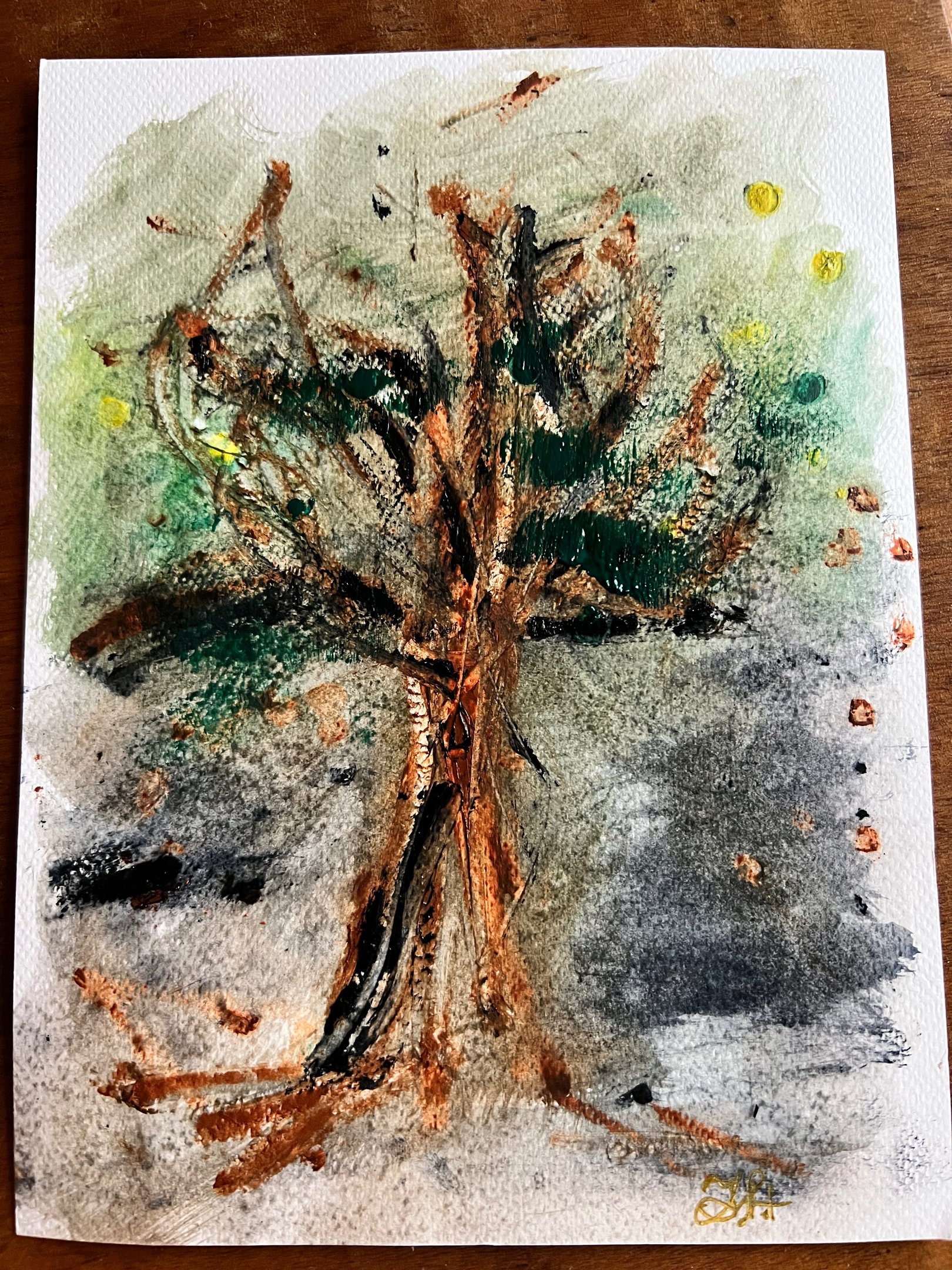The silent weight of climate anxiety: Why we must listen to the voices of young people
In an age where the planet itself cries for help, the youth carry not only the burden of the future but also the silence of those who refuse to listen. Their grief is not weakness, it is a warning.


We were born into borrowed air,
hands trembling with ocean memories.
They told us it’s just weather,
but we learned to read storms like diaries
The sky writes us letters is heat,
the forests answer in ash.
Our hearts, fault lines of tomorrow,
crack quietly under grown up silence.
We are not asking for miracles,
only for you to hear
how heavy the future sounds
when no one listens.
Around the world, young people are growing up under the constant shadow of environmental collapse. The climate crisis is not only a physical threat to ecosystems but also a profound emotional burden shaping how the younger generations view their future.
Societies cannot heal from the trauma of climate change if they dismiss the psychological toll it takes on young people. Literature and poetry of witness are crucial tools to articulate this anxiety and transform despair into collective responsibility.
This emotional struggle is well documented in media and research about youth and climate anxiety. In the article "Climate Anxiety Is Threatening the mental health of young people", written by Jamie Ducharme and published by Times Magazine (sept 2024), it is described that today's youth are taking a psychological toll by the climate crisis and are feeling fear, grief and despair about their futures. Young people who are in preschool already feel distressed and unsure about what the future will give and what they will have to go through to once again feel a certain security in their own lives. Many of them channel these emotions into activism against the current situation. But still, societies and even politicians seem to ignore the voices of the youth and keep making the situation worse. These people's silence and ignorance only deepens the youth's trauma and powerlessness.
Research has also shown that this mental toll has measurable psychological effects on youth. In the academic article about climate change, published by Vergunst (2024), they explain that the worries and mental health burdens due to climate change are measurable among young people. They show that the climate worry and cumulative suffering experienced by the youth, increases anxiety, depression and even self-harm. This is not a temporary thing and these mental health symptoms occur to people in between the ages of 15-17 years old. But the symptoms of these mental health issues can grow into stronger and more long-term emotions in young adulthood. Young adults feel a cumulative effect of the symptoms and get more lasting depression and mental health problems. Therefore, this research confirms that even when young people experience these kinds of symptoms which are mostly caused by politicians dismissing these feelings that are expressed – they continue to? affect them when the youths become young adults.
The climate crisis is not only about melting ice, but also about a young generation being silenced and neglected due to not having a voice in this conflict. That's why poetry of witness can remind us of what young people are going through and experiencing. For instance, Carolyn Forché, an influential poet, has poetry that speaks for those whose voice has been taken away. This kind of literature preserves the memory of those ignored voices and transforms silence into testimony. Eco poetry also offers powerful evidence and testimonies that give a voice to the voiceless. I think poetry of witness is proving to be a vital tool to fight and stand strong against these upcoming health issues in the young generation.
There are many poems that show this emotional side of the climate crisis, giving young people the voice they need to express their feelings, grief and the evidence of their lived experiences. For example there is the poem by Prince Ea, "Dear Future Generations, Sorry" (2015), which describes the guilt we have for the upcoming generations, due to the intergenerational responsibility that we have been put up with, but not been taking care of. The poem also reflects on a collective call that future generations will be left with; "Sorry we left you with our mess of a planet", it says. Furthermore there is the poem "Rise: From one island to Another" (2018), written by Jetnil-Kijiner and Niviana, which describes the future as a global solidarity and survival for the next generations. I personally think these poems are vital for the healing and well being of the young generation, and it also motivates them to gather and take action on politicians and people with power who don’t listen.
To conclude, societies can only heal when leaders and politicians choose to listen to the voices of the youth, making them feel validated, and freeing them from the psychological toll of climate change. If they do not, their silence will only double their suffering of young people, who face both environmental collapse and emotional neglect. Lastly, poetry and research surrounding this matter build a bridge from despair to action, encouraging young people to turn their anxiety into activism and to transform dismissed emotions into collective strength which is and will furthermore guide them to activism and hopefully to less dismissed emotions.
Written by Eno Femenia Gruau
